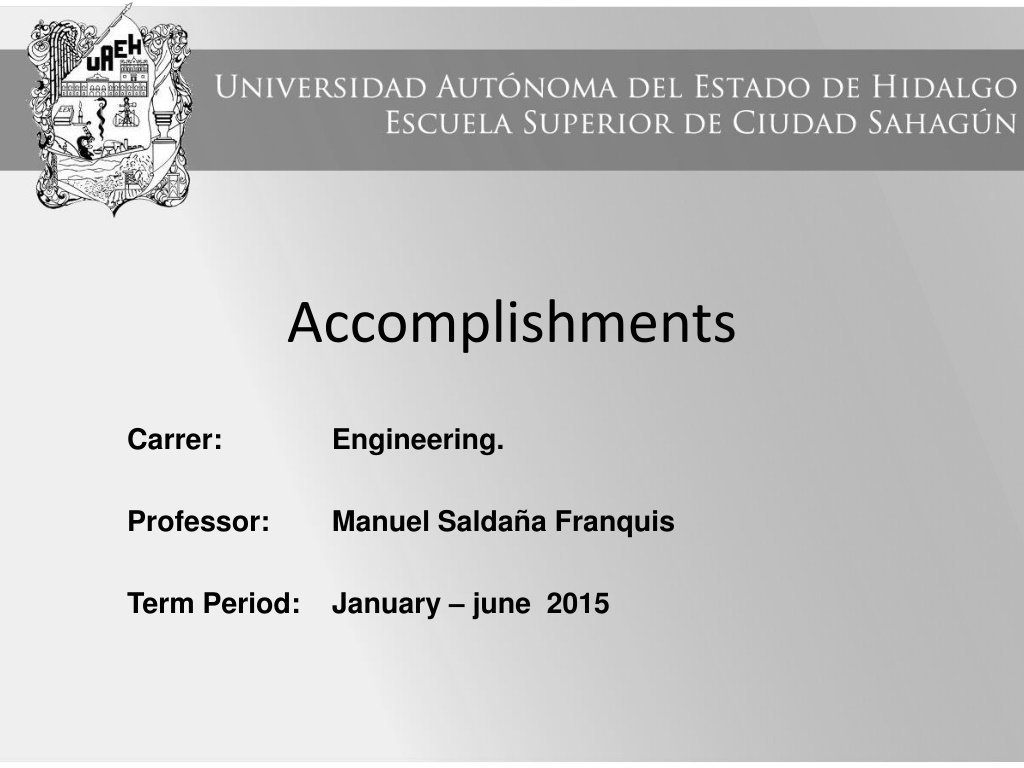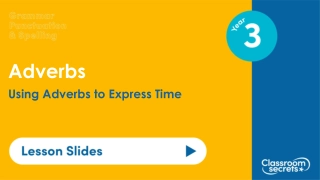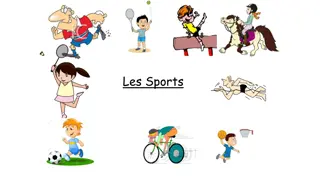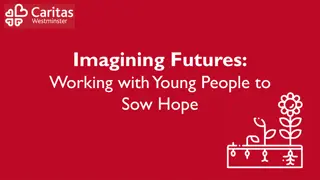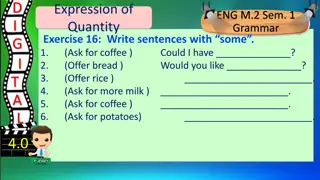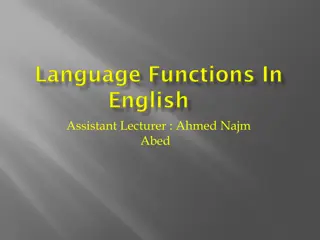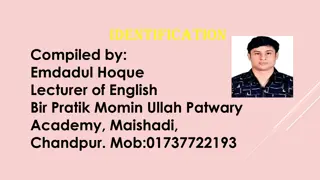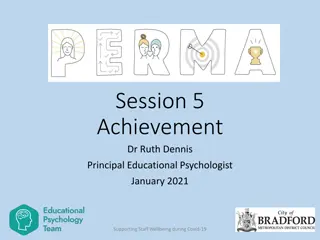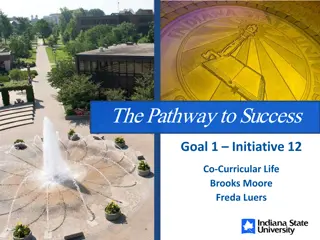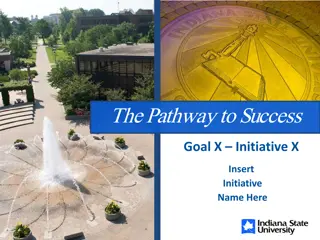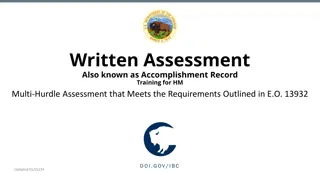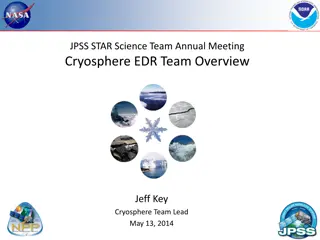Expressing Accomplishments in English: A Comprehensive Guide
Learn how to express accomplishments in English using the verb "have/has" and past participle verbs. This guide covers affirmative, negative, and interrogative forms, along with differentiating between "since" and "for" when indicating duration. Master the language nuances for talking about achievements easily and effectively!
Uploaded on Oct 09, 2024 | 0 Views
Download Presentation

Please find below an Image/Link to download the presentation.
The content on the website is provided AS IS for your information and personal use only. It may not be sold, licensed, or shared on other websites without obtaining consent from the author. Download presentation by click this link. If you encounter any issues during the download, it is possible that the publisher has removed the file from their server.
E N D
Presentation Transcript
Accomplishments Carrer: Engineering. Professor: Manuel Salda a Franquis Term Period: January june 2015
Accomplishments Resumen Se considera que un logro es una acci n que comenz en el pasado, continua en el presente y puede prolongarse hasta el futuro. ABSTRACT It is considered that an accomplishment is an action that started in the past, continues at the present and can be prolonged through the future. KEY WORDS: Have, has, since, for, yet, already, ever, never, just.
Accomplishments Past Present Future Accomplishment
For example: I have lived in Pachuca for 5 years. Present Future Past Continues at the present (because I never mentioned that now I m living in a different place.) This Can be prolonged through the future (until I move to another city or die!) accomplishment started in the past (the year 2010)
To express accomplishments we need: The verb Have / Has which in Spanish is Haber , so the conjugation is as follows: I have yo he You have t has He has l ha She has ella ha It has esto ha I have taught English in college for ten years. My wifehas lived in Sahagun for twenty years. We have nosotros hemos You have ustedes han They have ellos han
We also need: Verbs in past participle which in Spanish their endings are: ADO IDO TO SO CHO sung eaten seen printed said cantado comido visto impreso dicho
Three forms to express accomplishments Affirmative:Subject + Have / Has + Verb in Past Participle + Complement. We have studied at UAEH for four years. Negative:Subject + Haven t / Hasn t + Verb in Past Participle + Complement. We haven t studied at UAEH for four years. Interrogative: Have / Has + Subject + Verb in Past Participle + Complement. Have we studied at UAEH for four years?
Since vs For Since = Desde For = Por They have lived in California since 2009. They have lived in California for five years. She has been a teacher since 2005. She has been a teacher for ten years.
Additional words to express accomplishments. Yet Already Ever Never Just = = = = = Todav a Ya Siempre Nunca Acaba, solo
Examples: My sister hasn t gotten her driver s license yet. My students have already understood this topic. Have you ever been in Pachuca? Mario has never eaten chinicuiles. I have ever bought a lottery bill, but I have never won. My computer has just found a virus.
Choose the correct answer Maya has been a professional singer ________ 1989. A) For B) since C) yet D) already The beaver has ______ an emblem of Canada for many years. A) being B) was C) been D) be I ____________ been snowboarding since last winter. A) have B) was C) has D) having
Choose the correct answer So far, it has rained __________five hours. A) already B) since C) yet D) for Mary has ___________ a diary since she was ten years old. A) keeping B) kept C) keeps D) keep They haven t been married ___________ A) already B) never C) just D) yet
Complete the following sentences Example: I ___________ my father's car. (to wash) Answer: I have washed my father's car. 1. Karen ______________________ an e-mail. (to send) 2. Dave and Pat __________________ the museum. (to visit) 3. They __________ already ________________ their rucksacks. (to pack) 4. I __________________________ at the pet shop. (to be) 5. We ________________________ the shopping for our grandma. (to do) 6. Markus _____________________ an accident. (to have)
Referencias Davis, P. (2014) Make It Real Professional UAEH: M xico. Rogers, intermediate. Cambridge: UK M. (2010) face2face pre-
